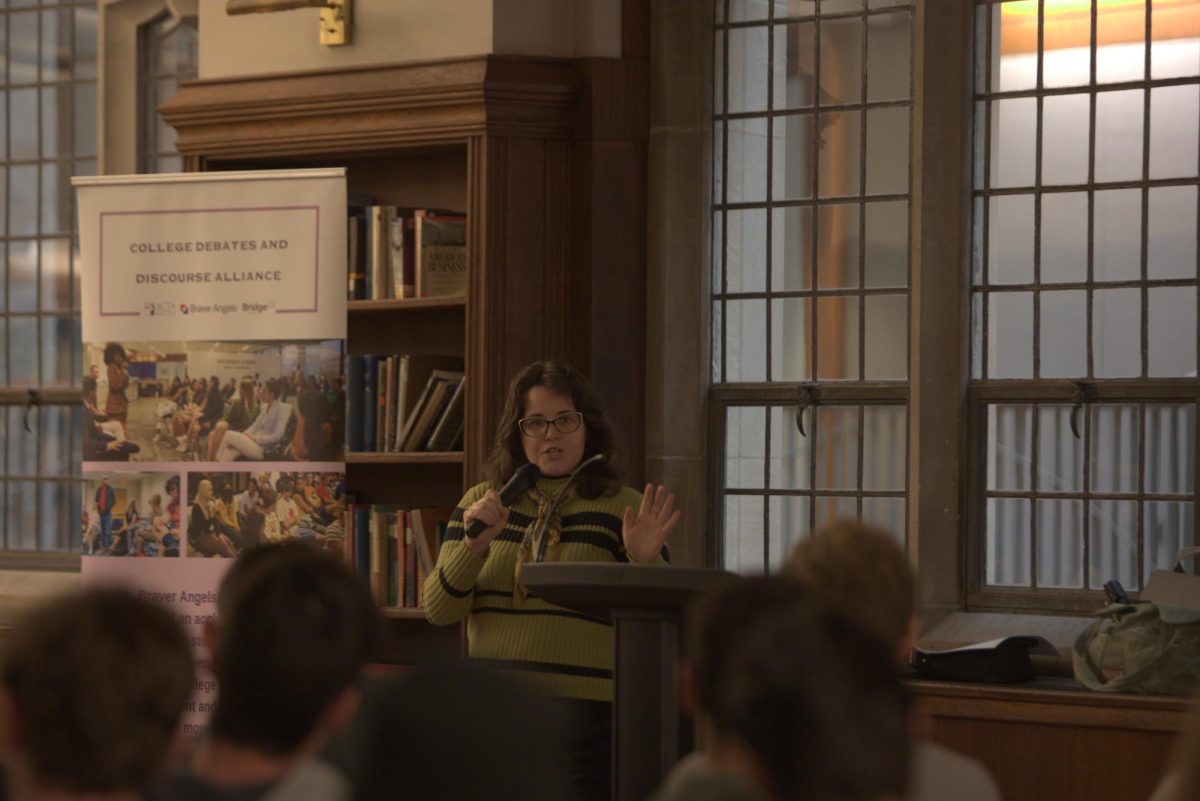The parties stipulated that “all claims asserted in this action shall be dismissed with prejudice and without costs,” meaning that the plaintiff cannot refile the suit against the University on the same grounds and that no court fees were awarded to either party.
Details of the settlement are not publicly available, and lawyers for the student did not respond to inquiries from The Heights. The University wrote in a statement only that “the case was dismissed by agreement of the parties.”
The case entered into discovery, a pre-trial fact-finding phase, in U.S. District Court this past February.
In November 2018, another BC student, identified as “Jane Roe” in court documents, reported to Student Affairs Title IX Coordinator Melinda Stoops that Doe had engaged in a non-consensual sexual encounter with Roe while she was intoxicated. The University found Doe responsible for sexual assault and suspended him in June of 2019.
The student filed a suit against the University in July of last year alleging that he was deprived of a fair process by BC’s disciplinary proceedings, which at the time utilized a “single investigator model” to investigate sexual assaults.
The following month, presiding Judge Douglas P. Woodlock temporarily overturned the suspension of the student, identified as “John Doe” in court documents, allowing him to return to the University and enroll in classes in the fall.
The University appealed Woodlock’s decision on Aug. 28, 2019, placing the case before the U.S. Court of Appeals at the First Circuit, which overturned Woodlock’s decision and reinstated the suspension.
K.C. Johnson, a professor at Brooklyn College who chronicles Title IX litigation, said that the settlement of the case prevented the Massachusetts courts from addressing the question of whether the University must allow cross-examination to ensure “fundamental fairness,” or meeting the standards of due process.
It is against the norm for any college with the previous favorable opinion to settle at this stage in the case, Johnson said, referencing the First Circuit’s reinstatement of the student’s suspension.
“For BC to settle under those circumstances, you kind of wonder what was in the material that would have come out in the looming motions in this case,” Johnson said.
The model, which was University policy between the fall of 2014 and the August of 2019, did not include any real-time cross-examination in the investigation. Woodlock said that BC’s single investigator model deprived Doe of fundamental fairness, as it lacked real-time cross-examination or an equivalent process.
The “single investigator model” employs the use of one or two investigators—in this case, Assistant Dean of Students Kristen O’Driscoll and external investigator Jennifer Davis. The investigators interview the accused student, the complainant, and any witnesses before sending a report and finding to the Student Title IX coordinator and what was then the Dean of Students Office.
Vice President for Student Affairs Joy Moore reorganized The Dean of Students Office into the Division of Student Affairs in 2019. The Office of Student Conduct is now responsible for Title IX investigations.
Woodlock referenced the requirement of public universities to ensure constitutional due process by including some form of real-time cross-examination, as found in Haidak v. University of Massachusetts Amherst, suggesting that the responsibilities of public and private universities are “more or less the same thing.”
Woodlock wrote that it was likely that Doe would succeed on his claims that he was deprived of fair process.
“The balance of hardships … would decidedly weigh more heavily upon John Doe if the within introductory relief is not granted as compared with the significantly less weighty hardship that would be experienced by Jane Roe or by Boston College,” Woodlock wrote in the decision.
In the First Circuit decision, Judge Sandra L. Lynch referenced two rulings from the Supreme Judicial Court of Massachusetts—Schaer v. Brandeis University and Coveney v. President and Trustees of the College of the Holy Cross—which found that private universities are not bound by the due process clause of the Constitution, but rather fundamental fairness and basic fairness.
The settlement comes in the wake of the Department of Education’s release of new Title IX regulations in May. Included in the new rules are mandated live cross-examination, a more narrow definition of sexual harassment, and the ability for schools to use a higher standard of evidence in their sexual misconduct investigations.
Stoops declined a request for comment from The Heights about whether the settlement will have any impact on BC’s Title IX policies.
The University still had to institute a cross-examination policy, though, to comply with the new Title IX rules.
According to BC’s Student Sexual Misconduct Policy for the 2020-2021 academic year, a sexual misconduct hearing will consist of an administrative hearing board panel or a hearing officer, all of whom will be trained on investigating sexual misconduct complaints.
Johnson argued that the Department of Education’s changes to Title IX policy under Secretary Betsy DeVos have made the system more equitable for students accused of sexual assault.
“The basic premise of the DeVos rules, stripped from a lot of the rhetoric, is this idea that schools weren’t handling these cases fairly enough for accused students,” Johnson said. “And what the DeVos rules particularly targeted was this concept of the single investigator model. … If the allegation is wrongful, or just unclear, it creates a system that is biased against the accused.”
American Civil Liberties Union Deputy Legal Director Louise Melling said that the new Title IX rules, though they promote fair process, do not adequately protect students’ access to education.
“Title IX was adopted to ensure that no student, whether in grade school, high school, or university, would be denied or limited educational opportunities because of sex,” Melling said. “… The Trump administration is doing exactly what Title IX prohibits—discriminating on the basis of sex.”
Featured Image Courtesy of Massachusetts District Court



















